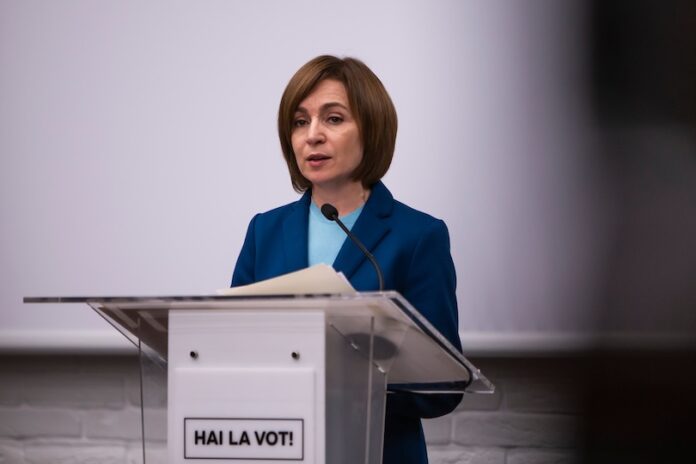I had the privilege of serving as an international observer for both rounds of the 2024 Moldovan presidential election. The first round of polls took place on 20 October, followed by a runoff on 3 November. Incumbent president Maia Sandu faced off against former Prosecutor-General Alexandr Stoianoglo, eventually winning her second and final term. The international media portrayed the election as a showdown between East and West, with Sandu representing the pro-European stance and Stoianoglo aligning more with Moscow. Third-place finisher Renato Usatîi didn’t clearly show his geopolitical leanings. Candidates Victoria Furtună and Vasile Tarlev, who finished lower, were believed to be influenced by Russian businessman Ilan Shor, highlighting the primary divide in Moldovan politics.
A majority of Moldovans approved adding the goal of EU membership to the country’s constitution. This move was seen as a nod of support for Sandu. The election was closely contested, with Sandu citing Russian interference as a factor, specifically accusing clandestine Russians of large-scale vote buying. The official reports from the OSCE for both rounds were mostly positive, highlighting administrative resource misuse and biased media coverage in favor of Sandu. Sandu’s victory in the runoff brought relief to the Moldovan government.
Throughout the election period, Moldovan authorities raised security concerns, accusing Russian-trained groups of sabotage. To address these concerns, the USA, UK, and Canada jointly issued a statement in June 2024 denouncing Russian influence. The US also imposed sanctions on Gagauzian Governor Evghenia Guțul. Various incidents like vandalism against institutions and disruption of pro-Russian activities added to the tensions during the election period.
Allegations of Russian interference through “voter busing” and misinformation campaigns further escalated tensions, prompting the EU and US to impose sanctions. These alleged plots from Moscow, Serbia, and Bosnia heightened fears of destabilization during the election. The EU’s deployment of the Cyber Rapid Response Team underscored the seriousness of cybersecurity threats.
Prime Minister Dorin Recean reported death threats and illegal voter transportation during the election, pointing to Russian interference. Moldovan citizens abroad also faced security issues, including bomb threats at polling stations. The Moldovan government filed complaints about Moscow’s interference with the Russian ambassador. Despite these challenges, polling stations were opened across the country, with incidents reported by Promo-LEX observers.
The election revealed deep political rifts, with Sandu emphasizing a pro-European stance and Stoianoglo downplaying Russian interference. The divided opinions in Transnistria reflected the complex dynamics in the region, with residents expressing various views on the geopolitical landscape. The election highlighted the contrasting influences of Brussels and Moscow in Moldova, posing significant challenges for President Sandu in navigating these competing interests.




